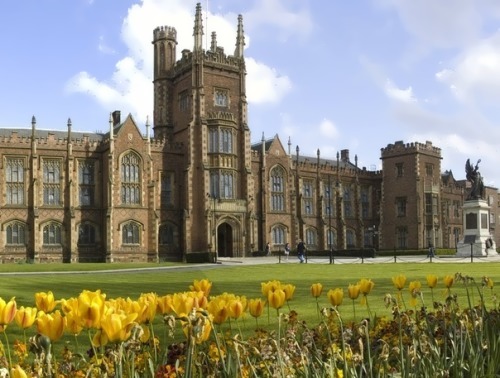Northern Ireland
Northern Ireland, also known as Ulster, is still a part of the United Kingdom. It is made up of six countries: Antrim, Armagh, Down, Fermanagh, Londonderry, Tyrone. One third of the population lives in and around the capital, Belfast. Belfast is also the most important port and commercial and industrial centre. Some parts of the territory, those that are not close to the capital, have remained mainly rural.
The Irish population is divided into two groups: the Protestants and the Catholics. The Protestants are of British origin. They are descendants of British settlers who came to Ireland in the XVIth and XVIIth centuries, during and after the Reformation. The Catholics are mostly natives of Ireland.
The Protestants were the majority and dominated the Catholics with strong discrimination. In 1968 the Catholics began the movement for equal civil rights.
The fightings between the two groups of the population continue to this day.
Northern Ireland has a strong cultural tradition: songs, dances, literature and festivals.
It has its own Art Council, and there are orchestras, theatres, ballet and opera companies.
Questions:
1. How many countries are there in Northern Ireland?
2. What is the capital of Northern Ireland?
3. Into what parts is the Irish population divided?
4. Who are the Catholics?
5. Who are the Protestants?
6. Has the Catholics-Protestants problem been solved?
7. Does Northern Ireland have strong cultural traditions?
Северная Ирландия
Северная Ирландия, известная как Ольстер, также является частью Соединенного Королевства. Она состоит из шести частей: Антрим, Даун, Ферманаг, Лондондерри и Тирон. Треть населения живет в столице — Белфасте — и вокруг нее. Белфаст также является самым важным портом, коммерческим и промышленным центром. Некоторые части территории, расположенные не совсем близко к столице, остаются, по большей части, сельскими.
Ирландское население делится на две группы: протестантов и католиков. Протестанты британского происхождения. Они являются потомками британских поселенцев, которые пришли в Ирландию в XVI—XVII веках, во время и после Реформации. Католики, в основном, уроженцы Ирландии.
Протестанты главенствовали и доминировали над католиками, причем имела место сильная дискриминация. В 1968 году католики начали движение за равные гражданские права. Борьба между двумя группами населения продолжается и по сей день.
В Северной Ирландии сохранились сильные культурные традиции: песни, танцы, литература и фестивали. Имеется своя собственная Академия искусств, а также оркестры, театры, балетные и оперные труппы.
Источник: 100 тем английского языка. Авторы Каверина В. Бойко В. Жидких Н.
